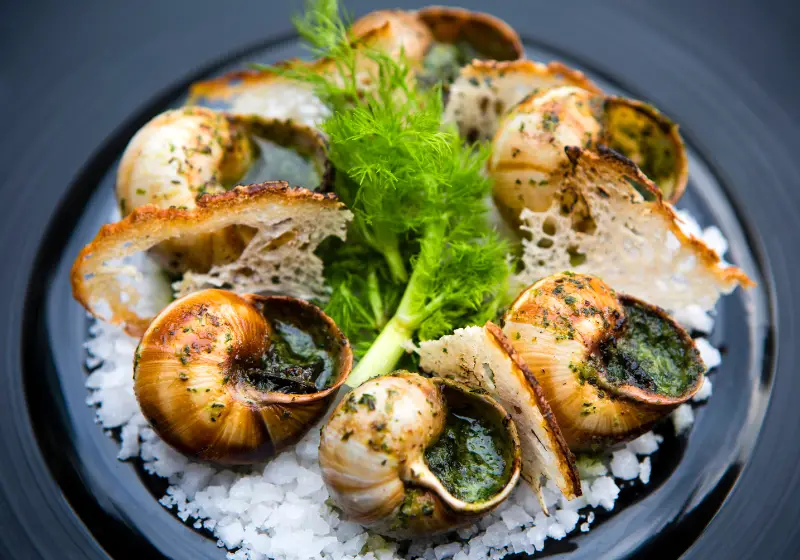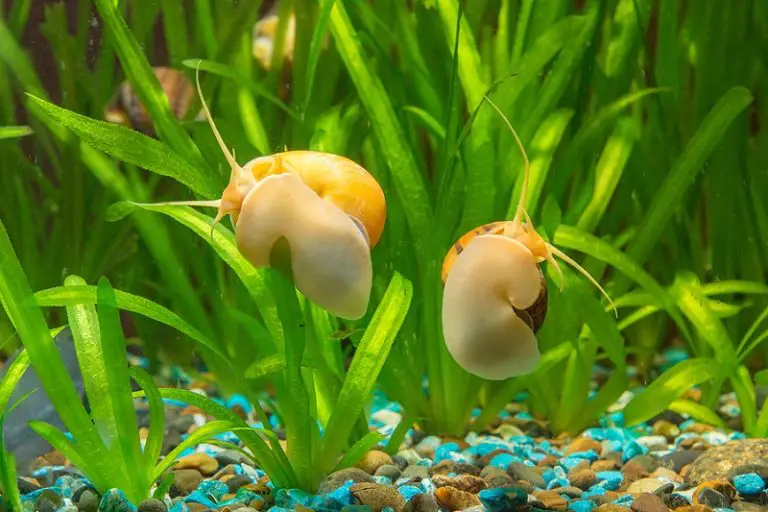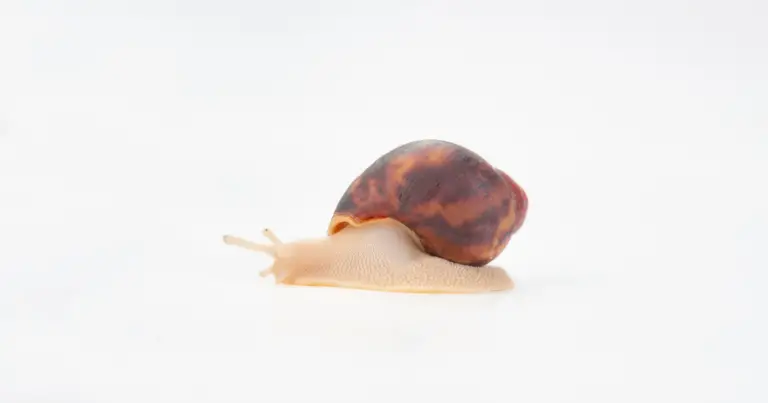What Are The Benefits of Snails?

Wondering what are the Benefits of Snails? Snails may not be the first thing that comes to mind when considering beneficial creatures, but these slow-moving gastropods offer various advantages. From their nutritional value for humans to their ecological role in the garden, snails are intriguing creatures with more benefits than meets the eye. In this article, Benefits of Snails, we will explore why snails are worth getting to know better.

You might be surprised to learn that snails are a rich source of nutrients, including protein, vitamins, and minerals such as selenium, calcium, and iron. Some people consider snail meat a delicacy and enjoy it as a healthy, low-fat alternative to other meats. Apart from their nutritional properties, snails also play a vital role in maintaining the health and balance of your garden’s ecosystem.
Snails help decompose organic matter in the garden, such as dead leaves and plant debris, contributing to nutrient recycling and improving soil health. Additionally, they serve as a food source for other beneficial creatures, like birds, frogs, and predatory insects. By understanding the benefits of snails, you’ll have a new appreciation for these small but mighty creatures.
Contents
Table of Contents
Understanding Snails

Snails are fascinating mollusks that belong to the Gastropoda class. Their distinctive features include a coiled shell and tentacles, which serve various purposes in their survival. As you delve into the world of snails, you’ll appreciate the unique characteristics and the benefits they can offer.
A snail’s coiled shell is a protective home and helps the snail retain moisture, which is essential for their survival. The shell’s size and shape vary depending on the species. As a snail grows, its shell expands in a spiraling pattern, indicating its age.
On top of their heads, snails have tentacles, often appearing in two pairs. The upper pair of tentacles contain the snail’s eyes, while the lower pair functions as organs facilitating smell and touch. The tentacles are crucial for orientation and help the snail find food.
Snails exhibit a unique biological characteristic: they are hermaphrodites. This means each individual carries both male and female reproductive organs, allowing them to reproduce without requiring a partner. This aspect contributes to their adaptability and survival in various environments.
Snails have numerous health benefits in the human diet as they are a rich source of protein, potassium, selenium, and vitamin B12. Snails contain 102 calories, 18 grams of protein, 2 grams of fat, and 2 grams of carbohydrates per 100 grams. Including snails in your diet can help maintain a balanced and healthy lifestyle.
As you continue exploring the world of snails, they’ll surely surprise you with their fascinating attributes. By understanding these intriguing creatures, you can appreciate their ecological significance and potential in contributing to a nutritional diet.
Snails in the Ecosystem

Snails provide various benefits to the ecosystem. They play a significant role in maintaining the balance of their habitat. As prey, they serve as a food source for predators such as birds, frogs, hedgehogs, and toads. Their high calcium content makes them a nutritious choice for these animals.
In addition to being a food source, snails contribute to biodiversity. Decomposers participate in the decomposition process by consuming dead and decaying plant matter. This helps break down organic material, recycling nutrients back into the soil.
Here’s how snails help the environment:
- Food source: Snails serve as nutrient-rich meals for various mammals and birds.
- Decomposers: They aid in the breakdown of dead and decaying vegetation.
- Nutrient recycling: Snails leave behind feces that help in soil development.
By fulfilling these roles, snails enhance their environment’s health, supporting the growth of plants and providing resources for other wildlife. Maintaining a balanced ecosystem is essential for sustaining life, and snails are crucial in this process.
Now that you know the importance of snails in the ecosystem, you can appreciate their presence and role in the environment. Keep in mind that preserving biodiversity is vital for a healthy planet, and every organism, including snails, contributes to that goal.
Health Benefits of Snails

Snails offer a variety of health benefits owing to their high nutritional value. They are packed with lean protein, essential minerals, vitamins, and omega-3 fatty acids, making them a healthy addition to your diet.
One of the primary benefits of consuming snails is their rich protein content. Their high-quality protein helps in muscle building and tissue repair while being low in fat. This makes them an excellent choice for those seeking a high-protein, low-fat diet.
Snails are also a good source of essential minerals, such as iron, calcium, magnesium, and zinc, contributing to maintaining strong bones, healthy blood circulation, and normal blood pressure. The iron in snails helps form red blood cells, ensuring efficient oxygen transport throughout the body. Calcium and magnesium are important for bone health, while zinc aids in boosting your immune system.
B vitamins A, B1, B12, and E in snails contribute to various health benefits. Vitamin A helps maintain healthy skin, eyes, and immune function. The B vitamins are essential for properly functioning your nervous system and maintaining normal blood pressure. Vitamin E acts as an antioxidant, which helps protect your body from the harmful effects of free radicals and reduces inflammation.
Omega-3 fatty acids in snails play a crucial role in maintaining heart health. They help lower high cholesterol levels, prevent blood clotting, and improve cardiovascular health. Additionally, omega-3 fatty acids possess anti-inflammatory properties that can help reduce inflammation.
Snails also provide selenium, an essential trace mineral that supports immune system function and plays a vital role in thyroid hormone metabolism. Selenium, along with other antioxidants present in snails, can help protect your body against cellular damage caused by oxidative stress.
Incorporating snails into your diet can offer numerous health benefits by providing various essential nutrients. These nutrients contribute to the proper functioning of your immune system, maintain heart health, support your nervous system, and encourage strong bones and healthy circulation.
Nutritional Value of Snail Meat

Snail meat is a nutritious and healthy food option that offers various benefits. With its relatively low-calorie content, you can enjoy this protein-rich food without worrying about excessive weight gain. A 100-gram serving of snail meat contains approximately 90-102 calories, making it an ideal choice for those wishing to maintain a healthy diet.
This delectable meat is also low in fat, containing only around 2.4% in a 100-gram serving. The fat in snails consists mainly of healthy fats, which can benefit your overall well-being.
One of the primary nutritional benefits of snail meat is its impressive protein content. A 100-gram serving provides 16.5-18 grams of protein, making it an excellent alternative for individuals seeking high-protein, low-fat diet options. This protein content is comparable to other popular protein sources like pork and chicken.
Snail meat is not only rich in protein but also low in carbohydrates. A 100-gram serving contains about 2 grams of carbohydrates, making it suitable for those following a low-carb diet.
Regarding the sodium content, snail meat has relatively low levels, with approximately 79 milligrams in a 100-gram serving. This moderate sodium content can benefit those who need to monitor their sodium intake for health reasons.
Your body may also benefit from ample amounts of essential minerals, such as copper and potassium, in snail meat. These minerals are crucial in various bodily functions, including maintaining a healthy immune system.
Additionally, snail meat is a valuable source of niacin, a B vitamin that assists in energy production within your body. Consuming snail meat can help you receive adequate amounts of this essential nutrient to support your overall bodily health.
Incorporating snail meat into your diet can provide various nutritional benefits. Its low-calorie, low-fat, and high-protein content make it an advantageous food choice. Plus, with its essential minerals and niacin content, snail meat can contribute positively to your overall health and wellness.
Snails as Food

When you think of snails, you may not immediately consider them as a food option. However, snails, especially sea ones, have been essential to culinary traditions worldwide. They are a delicacy and offer a range of health benefits.
One of the key attractions of snails as food is their rich and unique flavor. Snail’s taste can be described as slightly earthy with a hint of the sea, making them a preferred option for those experimenting with new flavors. Sea snails, in particular, can impart a subtle oceanic aroma to the dish, elevating the overall experience.
It’s worth noting that snails are high in protein and fat and relatively low in calories, making them an excellent addition to a balanced and healthy diet. An example of this nutritional information includes 102 calories per serving, 2 grams of fat, 57 milligrams of cholesterol, 79 milligrams of sodium, 2 grams of carbohydrates, and 18 grams of protein (source).
In addition, snails provide essential minerals and vitamins, such as vitamin B12, which aid in forming red blood cells and support the health of nerve cells (source). They are also a great source of selenium, an important nutrient for the body’s defense against illnesses and chronic ailments (source).
Snails can be prepared in various ways, and many recipes showcase their versatility. Some popular dishes featuring snails include escargot, snail-based stews, and pasta dishes. Snails can offer a distinctive and delicious element, whether sautéed with garlic and butter, simmered in a rich sauce, or added to a creamy pasta dish.
In conclusion, don’t shy away from incorporating snails into your culinary repertoire. Their unique flavor, nutritional benefits, and versatile nature make them an intriguing and rewarding addition to any dining experience.
Snails in Gardening

Snails can be beneficial to your garden in several ways. They’re nature’s decomposers, meaning they help break down dead and decaying plant matter. This process clears your garden of debris and creates fertilizer for the soil, promoting healthier plants.
If you’re worried about snails turning your garden into a buffet, you might want to know that snails prefer dead vegetation over living plants. That being said, snails may still munch on your garden plants occasionally. Consider attracting natural predators like ants or hedgehogs to your garden to keep snails in check. Ants will consume snail eggs, while hedgehogs love feasting on adult snails.
Use organic barriers like diatomaceous earth, eggshells, or coffee grounds around your vulnerable garden plants. These compounds create a rough or caffeinated surface that’s quite unappealing to snails. If you prefer, you can opt for a soaker hose, which reduces the amount of water available to snails, making your garden less appealing.
Additionally, avoid using slug pellets or other pesticides that can harm snails and their natural predators. Many of these products contain harmful chemicals that disrupt ecosystems and can be dangerous to pets and children. Instead, if you’re dealing with a more significant snail infestation, use humane methods like hand-picking them from your plants or creating traps such as a shallow pan filled with beer.
In summary, snails can be valuable to your garden when managed responsibly. They play an important role as decomposers, and their presence can also attract beneficial predators like ants and hedgehogs. Prevent snail infestations by creating organic barriers, and remember to avoid using toxic slug pellets that can do more harm than good.
Medicinal Use of Snails

Snails have long been recognized for their potential medicinal properties. The mucus or snail slime they produce has been known to benefit various health conditions. Let’s explore how snails can be beneficial for certain ailments.
Snail slime is a naturally rich source of proteins, antioxidants, and hyaluronic acid, making it highly beneficial for skin care. Snail slime’s antimicrobial and anti-inflammatory properties can help soothe your skin and promote healing if you’re struggling with acne or inflammation.
Snails have traditionally been used as an alternative remedy in cases of headaches and dizziness. The high protein content in snail meat may aid in alleviating these symptoms. Although clinical research is still limited, incorporating snail meat into your diet might relieve headaches and dizziness.
The potent analgesic effects found in snail venom can also have potential applications in medicine. Specifically, cone snail venom is being studied as a potential source of powerful painkillers. Although deadly, this venom can be harnessed to relieve chronic pain when properly extracted and administered.
Snails have also been used in traditional medicine to treat various respiratory issues, such as chest pain and shortness of breath. Some studies indicate that snail-derived compounds can help reduce inflammation, which might alleviate these symptoms. However, more research is needed to confirm these findings and establish the best method of using snail-derived compounds for respiratory problems.
Although consuming snails or using snail-derived products might offer some medicinal benefits, consulting with a healthcare professional before incorporating them into your health regimen is crucial. Always use caution and follow expert advice when exploring alternative medicine options.
7 BENEFITS OF SNAIL AND IT’S “WATER”
Additional Insights Into Snails
As you explore the world of snails, it’s important to consider their various benefits. Not only are snails a nutritious food source, but they also offer many health benefits due to their high concentration of important minerals and amino acids.
Firstly, snails are rich in essential nutrients like iron, making them an excellent option for anemia patients. Iron is necessary to produce hemoglobin, the protein that transports oxygen in your blood. Having an adequate intake of iron ensures that your body can function optimally and may help alleviate fatigue often associated with anemia.
Snails are also a great source of magnesium, an essential mineral that assists with nerve function, blood pressure regulation, and hormone production. Adequate magnesium intake can help improve your overall mood, reduce anxiety, and promote better sleep.
When looking to improve your calcium absorption, snails can be quite beneficial. They are high in calcium which strengthens your bones and teeth and contributes to proper muscle function. Including snails in your diet ensures that your body has access to the right nutrients for maintaining strong bones and preventing osteoporosis.
In addition to minerals, snails contain an array of essential amino acids. These amino acids are vital for building proteins in your body, regulating hormones, and supporting cell function. By consuming snails, you provide your body with the building blocks to maintain a healthy physiological balance.
Another important aspect of snails to consider is their reproduction. Most snail species are hermaphrodites, possessing both male and female reproductive organs. When they mate, they exchange sperm, and both individuals produce eggs. This efficient reproductive system ensures the species’ survival and helps maintain a stable ecosystem population.
In conclusion, incorporating snails into your diet can offer many health benefits. From combating anemia to promoting healthy hormone levels, snails are an excellent addition to a well-rounded nutritional plan.
Frequently Asked Questions: Benefits of Snails

What are the advantages of snails in an aquarium?
Snails in an aquarium can benefit the ecosystem by consuming algae and leftover food particles, reducing the need for cleaning and maintenance. They also help break down larger waste materials, improving water quality. Some snails even eat harmful pests that may damage your aquatic plants.
What is the nutritional value of snails?
Snails are low in fat and carbohydrates and are a good source of protein, containing approximately 18 grams of protein per 100 grams. They also provide essential fatty acids such as linolenic acid and linoleic acid, which are important for maintaining a healthy balance of omega-3 and omega-6 in your diet.
How does snail extract benefit our skin?
Snail extract, also known as snail mucin, contains beneficial compounds such as glycoproteins, hyaluronic acid, and glycolic acid, which can help to soothe, hydrate, and exfoliate the skin. This can lead to improved skin texture, reduced appearance of wrinkles, and enhanced skin barrier function.
How do snails help plants thrive?
Snails play a role in the decomposition of organic matter, breaking down plant and animal waste into nutrients that plants can readily absorb, promoting stronger and healthier growth. While some snails may cause damage to plants, certain species can be beneficial in this regard.
What are the health benefits of consuming snail water and honey?
There is limited concrete evidence to support the idea that consuming snail water and honey can provide specific health benefits. Some anecdotes suggest that this mixture might have antimicrobial and anti-inflammatory properties, but more research is needed to substantiate these claims. It’s essential to consult with a healthcare professional before incorporating such remedies into your routine.
Do snails possess any healing properties?
Though some traditional medicinal practices and anecdotal evidence mention the use of snails or snail extract for healing purposes, more scientific research is required to determine their effectiveness. If you’re interested in exploring alternative healing methods, it’s important to consult with a healthcare professional to ensure that the approach is safe and appropriate for your specific needs.




![What Do Apple Snails Eat? [Full Guide]](https://allourcreatures.com/wp-content/uploads/2021/10/what-do-apple-snails-eat-768x512.jpg)

